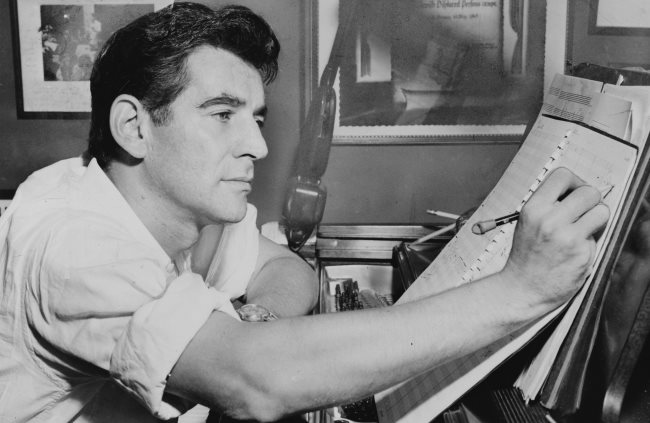Irving Fine, Symphony (1962)
by Byron Adams
Born December 3, 1914, in Boston
Died August 23, 1962, in Boston
Composed in 1962 in Boston on commission from the Boston Symphony Orchestra
Premiered on March 23, 1962 in Boston by the Boston Symphony Orchestra conducted by Charles Munch
Performance Time: Approximately 22 minutes
Irving Fine was born, educated, taught, and died in Boston. His childhood was miserable on a Mahlerian scale: his parents were an ill-matched and quarrelsome pair. As musicologist Howard Pollack has noted, there are numerous depictions of parents throughout his work. Some are chilling, some ironic, but few are benign. Unsurprisingly, this led Fine to seek out father figures, including Walter Piston, his teacher at Harvard, and Igor Stravinsky, whom he met in 1939. He found a loyal friend in Aaron Copland, with whom he taught at Tanglewood.
Given the circumstances of his early life, it is unsurprising that Fine cultivated a certain detachment in both his personality and his music. Piston, who combined reserve with rectitude, may have provided a model for Fine in this regard. (Piston resigned from the Harvard Musical Association in 1948 when one of its members blackballed Fine’s nomination because he was Jewish.) Fine became disenchanted with Piston’s music by the late 1950s, however, writing that his erstwhile teacher’s scores “no longer offers us any surprises.”
No such reservations marred his admiration for Stravinsky. This affection was only intensified by Fine’s study with Nadia Boulanger, who was the Russian composer’s most ardent and loyal champion. Indeed, the objectivity of Stravinsky’s neo-classical aesthetic had a profound and lasting influence on Fine’s music. Like Stravinsky, Fine was often drawn to droll subjects: one of Fine’s beloved scores in the repertory today is his witty Three Choruses from Alice in Wonderland for chorus and piano (1942).
Fine began to compose using Schoenberg’s “twelve-tone technique” slightly before Stravinsky began his own exploration of this method in 1951. Fine was never doctrinaire, however, and his serialized music evinces an admirable independence of thought. Fine’s late Symphony (1962) represents the culmination of his style in the directness of the opening movement, the Stravinskian wit of the second, and the unremitting tragedy of the finale. Sadly, Fine died of a massive coronary thrombosis at the age of forty-seven just eleven days after conducting the Symphony at Tanglewood.
Byron Adams is a Professor of Musicology at the University of California, Riverside.

